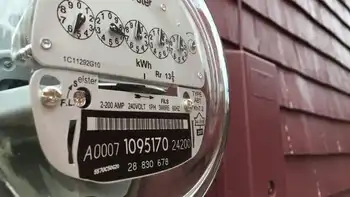GM invests in wireless charging startup
DETROIT, MICHIGAN - General Motors has invested $5 million in wireless charging start-up Powermat and will add its technology for small consumer electronics to its vehicles such as the Chevy Volt in 2012, the companies said.
The investment through the GM Ventures capital unit will support the small private company's development of the technology that GM expects will be adopted quickly in the auto sector and in other areas, GM executives said.
The move into wireless charging is part of a larger effort by GM to build a reputation as a technology leader led by the development of its Chevrolet Volt plug-in hybrid that runs first on electricity with a gasoline engine to extend its range.
GM, which emerged from a government-funded bankruptcy in July 2009, completed the largest-ever IPO last year and plans a sharp turnover of its vehicle lineup.
GM has a multiyear and multimillion-dollar commercial deal for the Powermat technology that includes exclusive use for one year to place the systems in vehicles worldwide, GM Ventures President Jon Lauckner said.
"This is a technology that really transcends any particular brand of vehicle, any particular market segment or any particular customer group," Lauckner said.
The investment by the venture capital unit is convertible to equity in Powermat within six months, Lauckner said. It is the third publicly announced investment for GM Ventures, which expects two more announcements shortly, he said.
The unit also has invested in electric car start-up Bright Automotive and lithium ion battery developer Sakti3 Inc.
GM plans to show a Volt equipped with the wireless charging devices at the Consumer Electronics Show in Las Vegas. The demonstration car has charging mats in the front console and in the back seat.
The Volt will be one of the first vehicles to receive the wireless charging technology, but the automaker has not yet decided which vehicles will receive the technology first, said Micky Bly, leader of GM's electric car development efforts.
Initial testing of the technology found no significant issues with adapting it to motor vehicles, Bly said.
"We are looking that we will have it sometime next year, in the 2012 calendar year," Bly said.
"We see this going in across our portfolio and moving up to high volume globally very quickly," Bly added.
Powermat, which was founded in 2007, has sold millions of its wireless systems that can charge a smart phone, music player, handheld games and other devices and expects "hockey stick" type growth, Chief Executive Ran Poliakine said.
"GM is a very, very good partner for us, not only for the automotive industry, but more in the context of what we are trying to achieve," Poliakine said.
Powermat sees much wider applications for its technology from airports to office furniture and kitchen appliances. The company eventually foresees the ability to charge an electric car just by parking it in the garage.
An expansion of Powermat technology to other automakers and areas would suit GM as an investor, GM executives said.
"We want others to use this after we clear that exclusive period because the higher volumes with other companies would only help us to bring down the cost to consumers," Bly said.
Related News

Berlin Launches Electric Flying Ferry
BERLIN - Berlin has taken a groundbreaking step toward sustainable urban mobility with the introduction of its innovative flying electric ferry. This pioneering vessel, designed to revolutionize water-based transportation, represents a significant leap forward in eco-friendly travel options and reflects the city’s commitment to addressing climate change while enhancing urban mobility.
A New Era of Urban Transport
The flying electric ferry, part of a broader initiative to modernize transportation in Berlin, showcases cutting-edge technology aimed at reducing carbon emissions and improving efficiency in urban transit. Equipped with advanced electric propulsion systems, the ferry operates quietly and emits zero emissions during…




